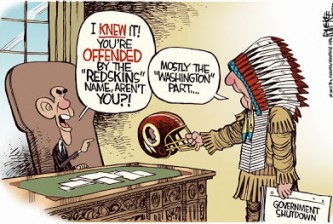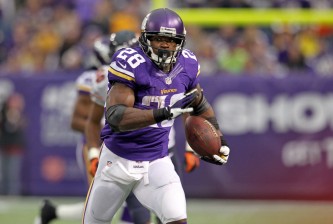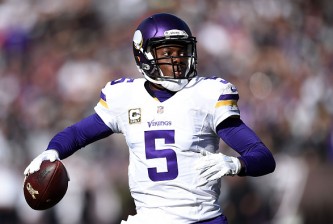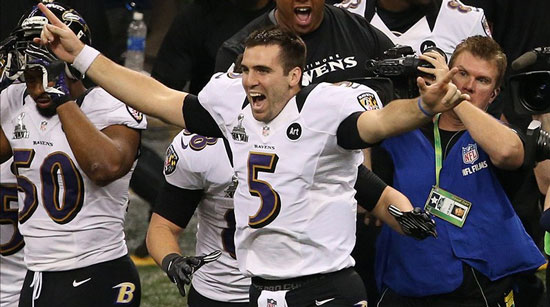From 1993 to 2011, the following men quarterbacked their teams to a Super Bowl Championship:
Troy Aikman, Steve Young, Brett Favre, John Elway, Kurt Warner, Tom Brady, Ben Roethlisberger, Peyton Manning, Eli Manning, Drew Brees and Aaron Rodgers.
Sure, there's the occasional Trent Dilfer and Brad Johnson, but for the last 20 seasons Hall of Fame-caliber quarterbacks have won 17 titles.
Enter Joe Flacco in 2012.
With the Baltimore Ravens' second championship, the league's most average quarterback now has a title despite never passing for 3,900 yards in a season, never throwing more than 25 touchdowns, never posting a passer rating over 95, never leading the league in any category at all, never making a Pro Bowl and despite posting "plus"* numbers at or below 100 in almost all major categories for his career.
*"Plus" numbers take rate stats like Y/A and passer rating and adjust them for league average. 100 is considered average. Anything above 100 is good, anything below 100 is bad. Flacco's career has hovered at or below 100 in every passing category but interception percentage. He is the text-book definition of the league-average quarterback.
We all know that one year does not a trend make, but with young quarterbacks like Russell Wilson, Cam Newton and Colin Kaepernick all in the mix for a title this year on teams with strong defenses and running games, is it still really necessary to build around the quarterback?
Is Joe Flacco the new normal for the NFL?
Eli and the Question of Elite
There's no hard and fast rule for what is considered an elite quarterback, but generally speaking, a player in the top-five in the league is a good starting point.
Of course, elite a moving target. Was Tom Brady an elite quarterback in 2001? Certainly no one knew it at the time. Then again, even he was ranked sixth in the league in passer rating and fourth in completion percentage that year. He was better than people realized and on the verge of breaking through.
A few years ago, there was a big brouhaha about whether or not Eli Manning was an elite quarterback. It's a fair question. If Eli is only considered a great because he won two titles and not because of his actual talent, then suddenly the door opens wider for non-elite quarterbacks to soar to immortality on the wings of a few hot weeks..
Throughout his career, Eli has been an-above average quarterback for sure. His plus numbers are consistent better than Flacco's, but not necessarily jaw-dropping. His 2011 season was clearly MVP-caliber however, as he passed for nearly 5,000 yards. Whether he consistently occupies a top-five spot, he has attained that level of play for stretches in his career, and one of those full-season stretches does correspond with a title run.
Believe it or not, the younger Manning will likely finish in the top-10 all time in touchdowns and passing yards. Even without the rings, he is on the border-line for a Hall of Fame career.
We can argue the Eli question all day, but it's clear he's a cut above Flacco, and at least capable of "elite" play.
Getting Hot at the Right Time
Whether or not a passer has to play like a top-flight QB for a full season, there's little question he has to play well in the post season. Consider two of the most dubious ring-winners of the past 20 years:
| Yards | Att | Comp | YPA | % | TD | INT | Rating | |
| 2007 Manning | 854 | 119 | 72 | 7.2 | 60.5 | 6 | 1 | 95.7 |
|
2012 Flacco |
1140 | 73 | 126 | 9.1 | 57.9 | 11 | 0 | 117.2 |
While no one would argue that Eli Manning and Joe Flacco were anything close to elite in 2007 and 2012, they did play at a ridiculous level in the playoffs. Had they sustained those numbers for a full season, they would have been among the best in football that year.
So it's clear that having an excellent passing attack still matters in the post season, even if sometimes it is generated by an otherwise flawed quarterback incapable of sustaining it over the long-haul. In the decade since Brad Johnson led the Bucs to glory, the Lombardi has been hoisted by teams with either top-flight quarterbacks or guys who were playing as if they were.
The Smash-Mouth Four
With apologies to Nick Foles and his small sample size, the list of the three best quarterbacks in the game right now is as follows:
Peyton Manning, Drew Brees, Aaron Rodgers (no debates there right?)
After that there's an odd assortment of old standards having bad seasons (Tom Brady, Matt Ryan) and a few stat compilers no one trusts (Phil Rivers, Tony Romo, Matt Stafford).
The question is what to make of the quartet of Andrew Luck, Russell Wilson, Colin Kaepernick and Cam Newton.
These four young quarterbacks currently lead teams poised to claim four of the 12 available playoff spots. Their collective Super Bowl odds stand at roughly 37 percent according to the Football Outsiders.
Their teams are all marked by extreme defensive mentalities (though the Colts unit doesn't measure up to the other three). All four run offenses ranked in the top 10 in rushing DVOA, and all four are in the top eight for rushing quarterbacks. Three of the four have top 11 defenses to go with their ground attack.
Compare that with the traditional power quarterbacks Tom Brady, Peyton Manning and Drew Brees. Their collective chances of winning it all are 43.1 percent. That speaks pretty well to the power of having one of the "elite". None of those guys run much and their teams all sport mediocre defensive units.
Already Among the Best?
It's entirely possible, of course, that the question of whether the four young passers can win it all isn't mutually exclusive with the premise teams need a truly elite quarterback.
Luck, Wilson, Newton and Kaepernick may already be scraping the edges of the top five. Luck and Wilson are the closest to elite status, breaking in at ninth and tenth in DYAR. Wilson is fifth in passer rating and fourth in the all-important YPA category, and Luck is seventh in QBR. The case for Newton and Kaepernick is more difficult to make. Both stand just on the edges of the top 10 in most categories.
All four are good, and Wilson especially is already trending toward greatness. Statistics aren't everything (if they were no one would put 2013 Tom Brady in the elite category), but they do help quell the kinds of biases that fail to recognize the amazing year that Matt Stafford is having.
It's important to have special quarterback play in order to win it all, and the four young guns are all capable of delivering it in January. A few legendary weeks may be all it takes to crown one of them as one of the best quarterbacks in the game.
As silly as it may be, quarterbacks are judged by how the other fifty-plus players on their teams play. If one of these four can do just enough to put his squad over the top, he'll be the newest member of the elite quarterback club.
After all, Joe Flacco…
****
Here's a statistically-informed (but not dictated) list of the NFL starting quarterbacks broken down by tier (but not ranked).
The Elite
Peyton Manning, Drew Brees, Aaron Rodgers, Tom Brady, Matt Ryan
The Good Whose Time is Coming
Matt Stafford, Russell Wilson, Andrew Luck,
The Maligned
Tony Romo, Phil Rivers, Ben Roethlisberger, Eli Manning, Jay Cutler
The Dangerous (Same Tier as The Maligned, but younger)
Cam Newton, Colin Kaepernick, Nick Foles, Robert Griffin III
The Average
Joe Flacco, Sam Bradford, Andy Dalton, Alex Smith























